Winning the Talent War - 6 Effective Strategies for Retaining Top Talent in Competitive Markets
Retaining top talent has become a significant challenge. There’s a high demand for quality talent amongst companies, and not being able to retain talent can be significant. There are high turnover costs associated with losing valuable team members from recruiting, hiring, and training new employees, to loss of priceless expertise, and a negative impact on relationships with clients, employees, prospects, and the overall brand.
As companies vie for the best and brightest employees, it's crucial to implement effective strategies to keep your star performers engaged and committed to the organization. This post will explore various strategies that HR teams can adopt to retain their top talent in competitive markets.
- Build a Strong Company Culture: A positive and inclusive company culture plays a pivotal role in retaining top talent. Employees are more likely to stay with a company that values their contributions, fosters a sense of belonging, and promotes a collaborative work environment. HR should focus on creating a culture that aligns with the company's values and encourages open communication and recognition of employee achievements.
- Offer Competitive Compensation and Benefits: In a competitive job market, compensation and benefits packages play a vital role in attracting and retaining talent. HR should regularly benchmark the company's salary offerings against industry standards and adjust them accordingly. Additionally, offering attractive perks, such as flexible working hours, wellness programs, professional development opportunities, and generous leave policies, can significantly contribute to employee satisfaction and loyalty.
- Provide Growth and Development Opportunities: Top talent seeks continuous growth and advancement opportunities. HR should invest in employee development programs, mentorship initiatives, and training workshops that not only enhance employees' skills but also demonstrate the company's commitment to their professional growth. Creating individualized career paths and providing opportunities for internal promotions can motivate employees to stay with the organization for the long term.
- Foster Strong Leadership and Employee Relationships: Employees are more likely to remain loyal to a company with supportive leadership and positive working relationships. HR should ensure that managers receive training on effective leadership and communication skills to foster a healthy and productive work environment. Regular feedback and performance evaluations can also help employees understand their strengths and areas for improvement, enhancing their overall job satisfaction.
- Recognize and Reward Performance: Recognizing and rewarding exceptional performance is essential for retaining top talent. HR should implement a robust employee recognition program that acknowledges employees' efforts and achievements, whether through monetary rewards, public recognition, or other meaningful gestures. Feeling appreciated and valued motivates employees to stay committed to the organization.
- Embrace Workplace Flexibility: Flexible work arrangements have become increasingly important to employees, especially in competitive markets. Offering options such as remote work, flexible hours, or compressed workweeks can enhance work-life balance and increase employee retention. HR should establish clear guidelines and policies for remote work to ensure a seamless transition to this mode
In today's competitive job market, retaining top talent is an ongoing challenge that requires proactive and strategic efforts from HR teams. By building a strong company culture, offering competitive compensation and benefits, providing growth opportunities, fostering strong leadership and employee relationships, recognizing and rewarding performance, and embracing workplace flexibility, organizations can create an attractive environment that keeps their best employees engaged and motivated for the long haul. Investing in talent retention not only benefits the employees but also contributes to the company's success and sustained growth.





